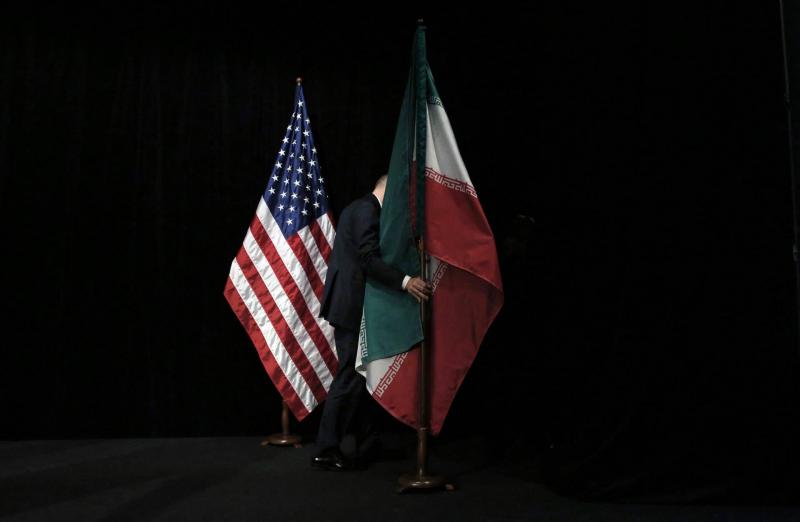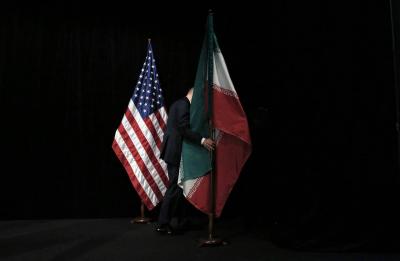The American absence, particularly politically, brings Israel and the Islamic Republic of Iran face to face in Lebanon. This absence was cemented by President Joe Biden's disastrous performance in the debate against his Republican opponent Donald Trump. Trump's chances of returning to the White House have increased in light of the decision made by the U.S. Supreme Court, which provided immunity to Trump and made betting on the failure of his presidential campaign due to his legal record a misplaced wager.
On the Israeli front, Prime Minister Benjamin Netanyahu feels a greater freedom in his actions regarding the war he is waging in Gaza, a war characterized by extreme brutality. There is no longer a U.S. administration putting pressure on the Israeli state, neither politically nor in terms of providing the required weapons. Netanyahu has already won his bet on Trump, who explicitly supported in his debate with Biden the continuance of Israel's war against Hamas—a war that the Israeli right believes will allow them to eliminate the Palestinian issue.
Ironically, the "Islamic Republic," in light of what Biden is going through, has found itself in an unenviable position. This is because the wars it is waging on the margins of the Gaza conflict now need to identify a new target in the absence of the original goal on one hand, and the continued original war in Gaza on the other hand. The Iranian goal essentially revolves around reaching a deal, whether public or private, with the Biden administration that would allow the U.S. to accept the Iranian role of dominance in the region.
The current administration has been unable to go far in any public deal with Iran. This is not only due to the need to consider the regional situation, that is, the status of allied Arab countries, but also due to another reason, which is the majority opposition in Congress to such leniency toward Iran.
Since the outbreak of the Gaza war on October 7, following Hamas's "Al-Aqsa Flood" attack, the Biden administration has limited itself to working on preventing the escalation of this war. This began with the deployment of the largest American aircraft carrier, the Gerald Ford, to the Mediterranean along with its accompanying group. The Islamic Republic understood the message despite its request for Hezbollah to open a front in southern Lebanon while respecting the agreed-upon rules of engagement between the party and Israel. Israel violated these rules, but the party still insists that it is committed to them.
When Israel attacked the Iranian consulate in Damascus last April and killed several senior officers in the Quds Force, the Islamic Republic had no option but to respond to the Israeli state. It did so with complete consideration for the American administration, which had been informed in advance by Tehran about the nature and magnitude of the attack. This allowed for the interception of most of the Iranian missiles and drones before they reached targets within Israel.
Notably, following Biden's downfall in the debate, the Islamic Republic has continued its escalation, either through Hezbollah in Lebanon or through the Houthis in Yemen... or through Iraqi sectarian militias affiliated with the Revolutionary Guard. These Iraqi militias are used to exert pressure on Jordan without taking into account the reality that the Kingdom is not an easy target. Sooner or later, with the possibility of Trump returning to the White House, Iran will need a new goal behind its escalation to demonstrate that it has the keys to expand the Gaza war... and that it holds the first and last word in the entire region, especially due to its control over Iraq and its presence on the Mediterranean and control over navigation in the Red Sea.
In the face of an American administration whose president had previously issued an order for the assassination of Qassem Soleimani, the commander of the Quds Force and one of the most important Iranian figures at the beginning of 2020, and who had also torn up the nuclear agreement with Iran, the Islamic Republic must reconsider its calculations. This is confirmed by the revitalization of German mediation, which acts as a mediator between Iran and Israel. Ultimately, it was this mediation that facilitated the arrangements accompanying Israel's withdrawal from southern Lebanon in May 2000.
That withdrawal was based on arrangements agreed upon between Iran and Israel through Germany. Germany has returned to the forefront in recent times in light of the new American absence and the potential return of Trump to the White House. Those who are surprised by this Iranian direction towards the Israeli option might question whether the signing of the maritime border demarcation agreement between Lebanon and Israel in the manner it was done in the fall of 2022 was coincidental. Is it also coincidental that the Lebanese maritime border agreement is holding firm? The Israeli Karish field operates as if there were no war in southern Lebanon or northern Israel.
Why couldn't the maritime border agreement be seen as Iran providing its credentials to Israel, showing goodwill and demonstrating its ability to adhere to any agreement reached regarding Lebanon? A very simple question remains: what price does Iran want from Lebanon if it guarantees the land borders with Israel in the same manner it has guaranteed the maritime borders?




